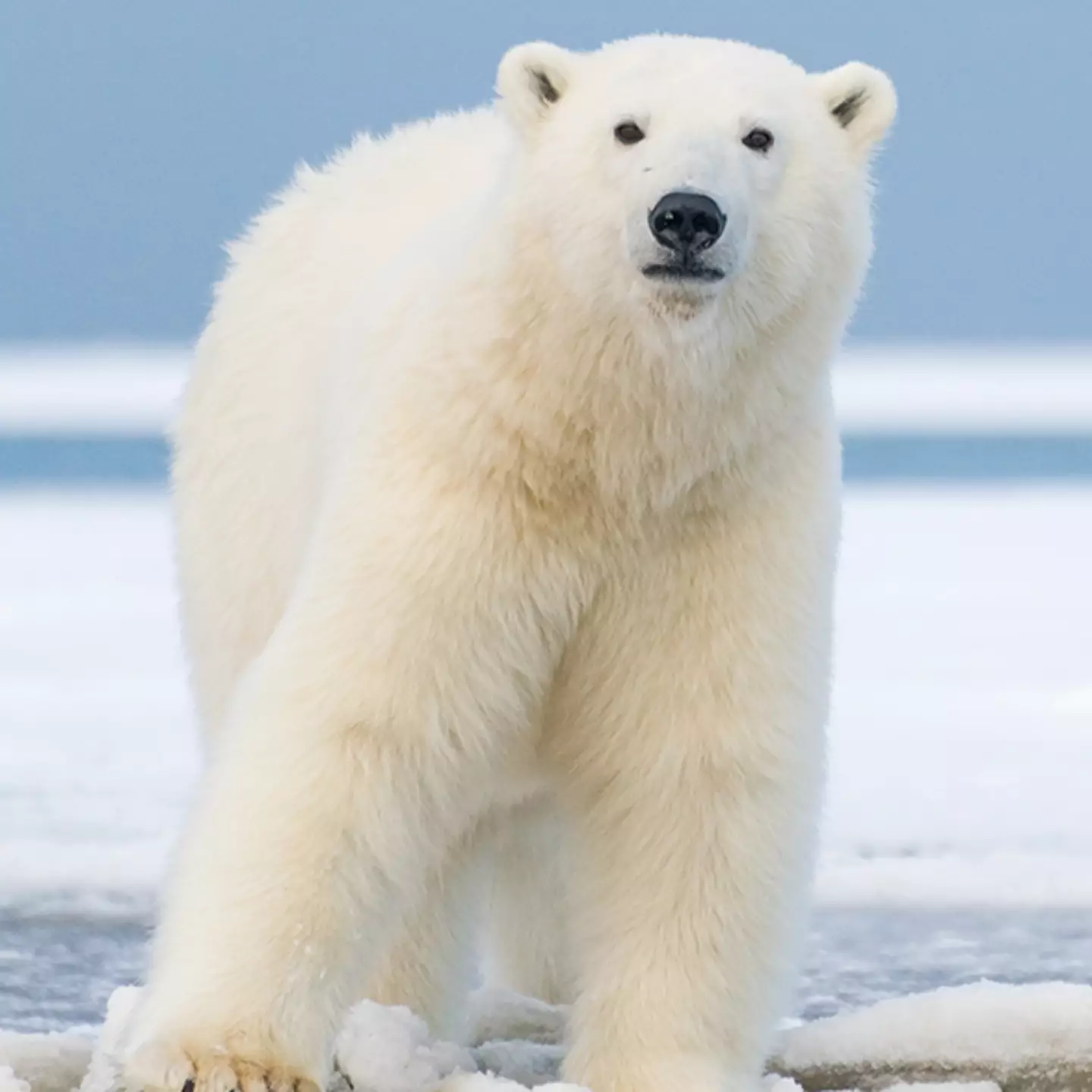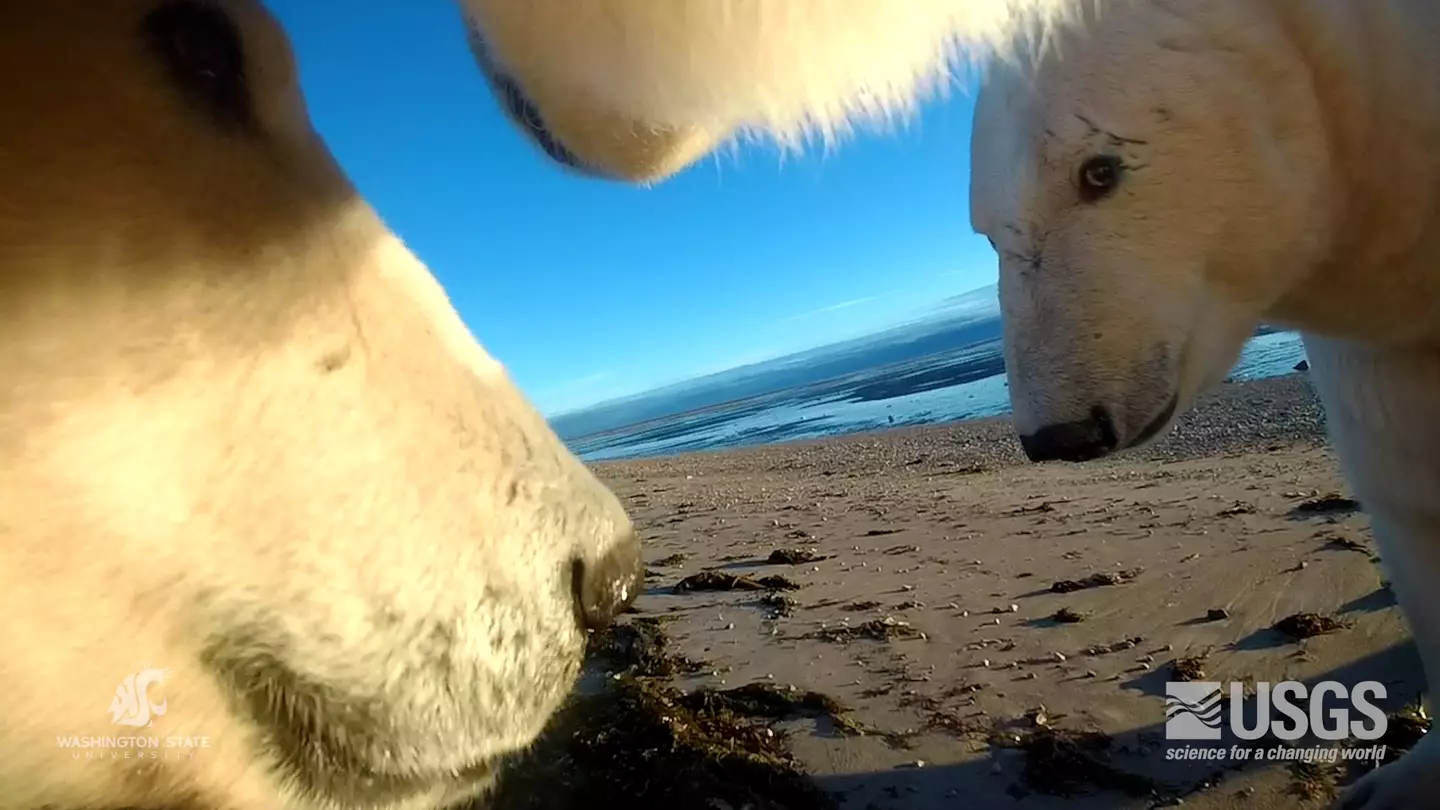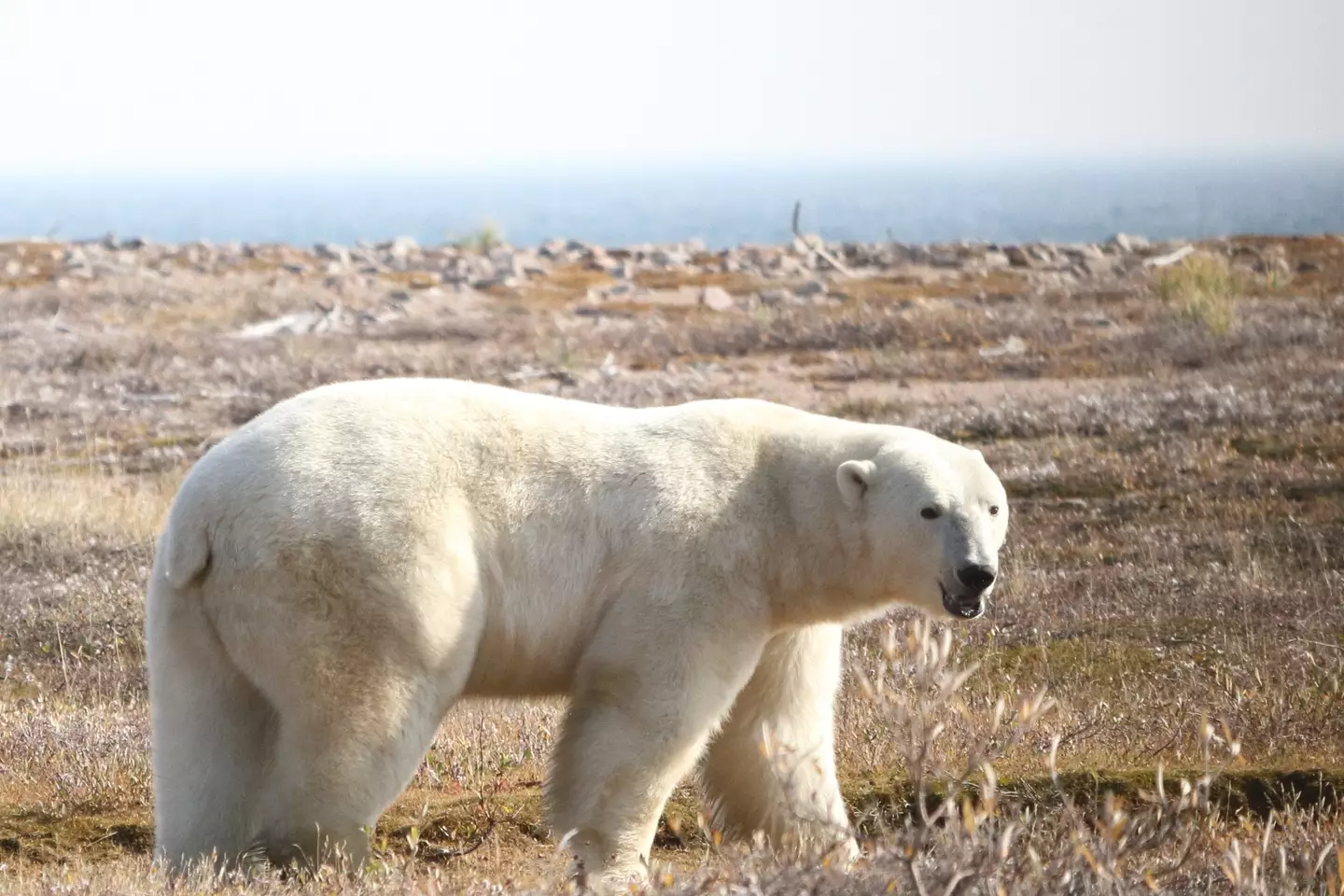
Polar bears are at risk of starvation in longer ice-free seasons in the Arctic.
That's the ominous warning given by scientists, who strapped cameras to a bunch of polar bears in the western Hudson Bay region of Canada over several weeks between 2019 and 2022.
Hudson Bay is feeling the effects of climate change - the area's ice-free period has increased by three weeks from 1975 to 2015, meaning there's less time for polar bears to spend on the ice, where they catch and eat seals to build up their energy reserves.
Longer ice-free periods force polar bears - who are specialized to hunt on ice for food - to spend more time on land. Researchers from Washington State University and US Geological Survey found the animals tried different strategies to maintain energy reserves on land - but almost all rapidly lost weight.
The scariest warning from the scientists was this: polar bears, particularly youngsters, were at greater risk of starvation, the more time they had to spend on land.
Advert
The way the study worked was simple: individual bears were weighed and assessed for their energy expenditure before and after the analysis period, and scientists kept track of them with GPS tags and cameras.

It revealed that the bears are clever - they tried to come up with new strategies on land, such as foraging for food or hibernation-like resting to conserve energy - but 19 of the 20 animals studied lost weight during the period, dropping an average of 1kg (2.2lbs) a day.
Only one lucky bear managed to gain weight - but scientists suggest that's because they happened upon the carcass of something like a seal or beluga on land.
Advert
Two female bears were predicted to starve to death before the average November 30 freeze-up of Hudson Bay, the study found.
Lead author Anthony Pagano, research wildlife biologist with the US Geological Survey polar bear research programme, said: “We found a real diversity of bear behaviours, and as a result, we saw a diverse range of energy expenditures.

“The terrestrial foods did give them some energetic benefit, but ultimately, the bears had to spend more energy to access those resources.
Advert
“As polar bears are forced on land earlier, it cuts into the period that they normally acquire the majority of the energy they need to survive.
“With increased land use, the expectation is that we’ll likely see increases in starvation, particularly with adolescents and females with cubs."
The paper was published in the journal Nature Communications.